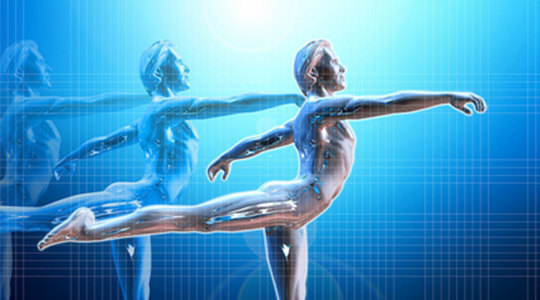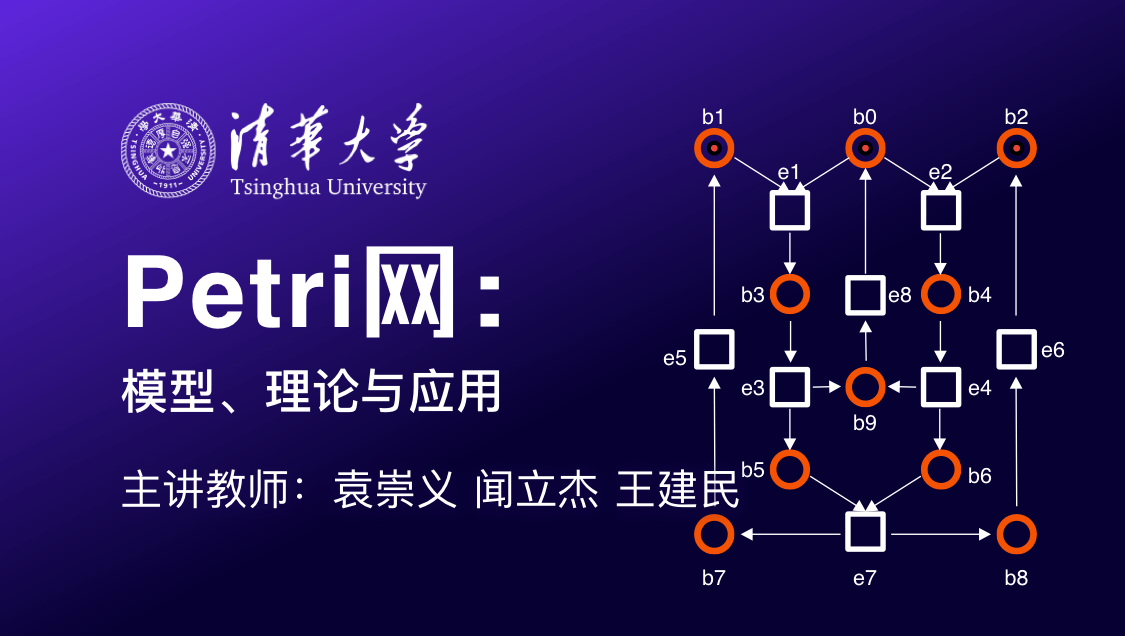
当前课程知识点:心理学之旅 > 第9章 情绪 > 第31讲 情绪双刃剑—压力 > 第31讲 情绪双刃剑—压力
你在生活中感到压力大吗
Do you feel stressed in your life?
当你说压力山大的时候是什么意思
What do you mean when you say you are very stressed?
压力大对你来说意味着什么
What does stress mean to you?
压力对应的英语单词是(stress)
stress means stress in English
在心理学中一般翻译成应激
Stress is usually translated into应激in psychology
指的是人对某种意外的环境刺激
which refers to the adaptive response process of people
所做出的适应性反应过程
to some unexpected environmental stimuli
也是一种情绪状态
and it is also an emotional state
意外的环境刺激叫作应激源
Unexpected environmental stimuli are called stressors
有的应激源来得很突然
Some stressors come suddenly
使我们处在短暂的
which make us in a state of temporary
高度唤醒状态中
high arousal
比如
For example
一辆汽车突然
a car suddenly rushes
向我们冲过来
towards us
或者老板给我们
or the boss arranges an
安排了一项紧急而又重要的任务
urgent and important task for us
这时
At this time
我们就处在急性应激状态中
we are in acute stress
有的应激源单独存在时
When a stressor exists alone
不会对我们有多大影响
it will not has much influence on us
但多种应激源持续影响我们
however, if many stressors continue to affect us
让我们长期处于唤醒状态
making us arousal for a long time
感到无法应对
and feel unable to deal with them
这时我们就处在慢性应激状态
then we are in chronic stress state
在生活中
In daily life
当我们说压力太大的时候
when we say that the pressure is too great
其实是说有太多压力源
we actually mean that there are too many stressors
使我们处于急性应激
which make us in the state of acute stress
或者慢性应激状态
or chronic stress
要想很好地处理应激
To deal with stress well
我们需要先了解应激的实质
we need to understand the essence of stress
20世纪20年代
In the 1920s
坎农发现
Cannon found that
当动物或人面对危险时
when animals or people faced danger
会产生一系列神经和腺体反应
they would produce a series of nerve and gland response
让身体做好战斗或逃跑的准备
to make the body ready for fight or escape
坎农把这种应激反应
Cannon called this kind of stress response
叫作战或逃反应
fight-or-flight response
这种反应的中心位于下丘脑
The center of this response is located in the hypothalamus
它能控制自主神经系统
which can control the autonomic nervous system
和垂体腺
and pituitary gland
来处理紧急事件
to deal with emergencies
所以下丘脑有时
so the hypothalamus is sometimes
又叫应激中心
called the stress center
在下丘脑的控制下
Under the control of the hypothalamus
自主神经系统
the autonomic nervous system
让我们呼吸加快 加深
makes us to speed up and deepen our breathing
心率提高 血管收缩
raise our heart rate, contract our blood vessels
血压上升
raise our blood pressure
让喉部和鼻腔的通道打开
open the channels of the throat and nose
让更多空气进入肺部
let more air enter the lungs
面部出现强烈的情绪表情
show strong emotional expressions on the face
胃部的消化功能暂时停止
and temporarily stop the digestive function of the stomach
自主神经系统还能促进
The autonomic nervous system can also promote
肾上腺素的分泌
the secretion of adrenaline
从而使脾脏产生更多红血球
so that the spleen produces more red blood cells
有助于伤口血液的凝固
which is conducive to the coagulation of the blood of the wound
使骨髓产生更多白细胞
the bone marrow produces more white blood cells
可以抵抗可能产生的感染
which can resist possible infection
使肝脏制造更多糖元
the liver produces more glycogen
为肌体提供能量
which provides energy for the body
在下丘脑的控制下
Under the control of the hypothalamus
垂体腺所分泌的促甲状腺激素
thyrotrophic hormone (TTH) secreted by the pituitary gland
会刺激甲状腺
will stimulate the thyroid gland
使机体获得更多可以利用的能量
and make the body obtain more energy available
垂体腺还分泌促肾上腺皮质激素
The pituitary gland also secretes adrenocorticotropic hormone (ACTH)
这种激素又叫应激激素
also known as stress hormone
能促进肾上腺皮质释放控制
which can promote the adrenal cortex to release hormone
新陈代谢的激素
to control metabolism
使肝脏释放更多的糖进入血液
and make the liver release more sugar into the blood
美国健康心理学家谢利·泰勒发现
Shelley Taylor, an American health psychologist
在应激状态下
found that females' responses
女性的反应和男性并不相同
to stress were not the same as males'
男性表现出战或逃反应
Men showed fight-or-flight response
而女性会产生照料和结盟反应
while women showed tend-and-befriend response
她们首先考虑孩子的需求
They care about their children's needs first
确保他们的安全
ensure their safety
还会和团体中有共同目标的成员结成盟友
and form allies with members of the group with common goals
从而减少对孩子的伤害
so as to reduce the harm to children
在急性应激状态下
In the state of acute stress
男性的战或逃反应
males' fight-or-flight response
或者女性的照料和结盟反应
or females' tend-and-befriend response
都提高了我们的祖先
all improve the possibility of our ancestors
在面对危险时能生存下去的可能性
to survive in the face of danger
所以具有重要的适应价值
so it has important adaptive value
但是现在
But now
我们的环境已经发生了很大变化
our environment has changed a lot
这些应激反应
these stress responses
已经不能完全适应我们现在的生活
can not fully adapt to our lives
比如 考试的时候
For example, we are in a state of stress
我们就处在应激状态
during the examination
这能让我们精力集中
which can make us concentrate
但我们没有必要
but we don't need to
去战斗或防御
fight or defend
所以呼吸加快
so accelerated breathing
血压上升
increased blood pressure
胃部消化功能停止
digestive function of stomach being stopped
肝脏制造更多糖元等等
liver making more glycogen etc
所有这些生理反应都没有任何价值
all have no value
却会影响我们正常应对考试
but will affect our normal response to the examination
再考虑另外一种情况
Consider another situation
如果并不强烈的应激源持续对我们产生影响
what happens to our bodies if less intense stressors
我们的身体会发生什么呢
continue to affect us?
20世纪30年代
In the 1930s
加拿大内分泌学家汉斯·塞里
Hans Selye, an endocrinologist from Canada
让实验动物承受若干伤害性事件
let experimental animals bear a number of harmful events
比如细菌感染 中毒 外伤
such as bacterial infection, poisoning, trauma
强制性束缚 热 冷等等
compulsory restraint, heat, cold and so on
来观察动物的反应
to observe the response of animals
结果发现
He found that
不同应激源所引发的
the physiological responses induced by different stressors
生理反应是相似的
were similar
他把这种反应叫作
which he called
一般适应综合征
general adaptation syndrome (GAS)
包括三个阶段
including three stages
首先是报警阶段
The first stage is alarm
这个阶段时间很短暂
This is a very short period of time
身体产生生理唤醒
in which the body produces a physiological arousal
为有力的行动做好准备
that is ready for strong action
如果应激源持续存在
If stressors persist
身体就进入抵抗阶段
the body enters resistance stage
这是一个中等的唤醒状态
This is a moderate arousal state
有机体可以忍耐
and the organism can tolerate
并抵抗长时间的应激带来的衰弱效应
and resist the debilitating effect brought by long-term stress
如果应激源持续时间足够长
if the stressors last long enough
或者足够强
or strong enough
身体的资源将会耗尽
the body's resources will be exhausted
就进入衰竭阶段
and it will enter the stage of exhaustion
由于促肾上腺皮质激素分泌的持续增加
Due to the continuous increase of adrenocorticotropic hormone secretion
免疫系统将受到损害
the immune system will be damaged
心理学家认为
Psychologists believe that
有些曾经让医生感到困惑的疾病
some diseases that have puzzled doctors
其实是心身失调
are actually psychosomatic disorders
是由慢性应激所带来的
which are caused by the damage of the immune system
免疫系统受损导致的
caused by chronic stress
生理应激反应通常是
Physiological stress is usually
自动的 可预期的
automatic and predictable
无法用意识加以控制
which can not be controlled by consciousness
但心理反应却是习得的
But psychological response is acquired
一定程度上依赖于
which depends on the explanation of
对于世界的解释
the world to a certain extent
第一类带来心理应激反应的
The first kind of stressors are
应激源是生活中的重大事件
the important events in life
这些事件不管是负性的
Whether these events are negative
比如失去工作
such as the loss of work
家庭成员死亡
the death of family members
还是正性的
or positive
比如结婚 取得成就
such as marriage, achievement
都会对人们的生活产生重大影响
will have significant impacts on people's lives
心理学家用 社会再适应量表
Psychologists use the Social Readjustment Rating Scale (SRRS)
测量这些生活事件对我们的影响
to measure the impacts of these life events on us
量表里面列举了43项生活事件
43 life events are listed in the scale
每个生活事件都有一个再适应的值
and each life event has a readjustment value
即生活变化单位
namely life change units (LCUS)
某个人在一年内
The total value of a person's
生活变化单位 的总值
"life change unit" in a year represents the impacts of life events
就代表了生活事件对心理和生理健康的影响
on mental and physical health
心理学家发现
Psychologists have found that
生活变化单位的值越高
the higher the value of the units of change in life
生病的次数就越多
the more often people get sick
第二类是灾难性和创伤性事件
The second is catastrophic and traumatic events
比如强暴 车祸 地震
For example, rape, car accidents, earthquakes
这些事件无法控制 无法预测
These events are uncontrollable, unpredictable
能对人产生巨大影响
and have huge impacts on people
最典型的后果是
The most typical consequence is
创伤后应激障碍
post-traumatic stress disorder (PTSD)
表现为不断以
which is manifested as repeated experiences
闪回或噩梦的形式
of traumatic events in the form
重复体验创伤性事件
of flashbacks or nightmares
患者对日常生活感情麻木
Patients are numb to their daily life
感觉和他人很疏远
and feel alienated from others
比如 李安导演的电影
For example in Ang Lee's movie
比利·林恩的中场战事 中
"Billy Lynn's Long Halftime Walk"
比利·林恩就不断以闪回的形式
Billy Lynn constantly experiences his tension
体验他在伊拉克战场上的紧张感
in Iraq in the form of flashbacks
另外
In addition
来自健康 社会
chronic stressors from health social
和环境事件的慢性应激源
and environmental events
比如经济条件 塞车
such as economic conditions
环境污染 噪声等等
traffic jams, environmental pollution, noise, and so on
以及日常生活中的小挫折
as well as small setbacks in daily life
比如家庭中的小争吵
such as small quarrels in the family
人际关系不好
bad interpersonal relationships
担心自己太胖
worrying about being too fat
物价上涨 事务繁忙等等
rising prices, busy affairs and so on
都会对我们产生持续影响
will have continuous impacts on us
让我们处于慢性应激状态
leaving us in a state of chronic stress
从而出现健康问题
thus leading to health problems
好 今天的内容就讲完了
OK, that's all for today
现在回顾一下主要内容
Now let's review the main content
压力又叫应激是一种适应性反应过程
Stress is an adaptive response process
也是一种情绪状态
and an emotional state
在急性应激条件下
Under the condition of acute stress
男性会产生战或逃反应
males will show fight-or-flight response
女性会产生照料和结盟反应
while females will show tend-and-befriend response
慢性应激条件下
Under the condition of chronic stress
我们会产生一般适应综合征
we will have general adaptive syndrome
在心理应激反应条件下
Under the condition of mental stress
生活中的重大事件
major events
灾难性和创伤性事件
catastrophic and traumatic events in life
以及环境中的其他慢性应激源
other chronic stressors in the environment
日常生活中的小挫折
and small setbacks in daily life
都会对我们产生影响
will affect us
下次课你将了解到
Next time you will learn
我们应该如何处理
how to deal with
这些压力相关问题
these stress-related issues
好 下次再见
OK, See you next time
-第2讲 理性之光—心理学是一门科学
-第3讲 寻找事实—心理学的研究方法
-第1章 作业
-第4讲 捷足先登—冯特创立心理学
-第5讲 心灵深处—弗洛伊德的精神分析理论
-第6讲 横空出世—华生与行为主义
-第7讲 融合与发展—心理学的新趋势
-第2章 作业
-第8讲 认知的第一步—感觉及其规律
-第9讲 获取信息—感觉的功能
-第10讲 超越元素—知觉的特性
-第11讲 感知三维世界—深度知觉
-第3章 作业
-第12讲 解决信息混乱—意识的功能
-第13讲 并不平静—睡眠
-第14讲 异常状态—梦、催眠与冥想
-第4章 作业
-第15讲 行为的变化—什么是学习?
-第16讲 建立联结—经典条件作用
-第17讲 行为的塑造—操作条件作用
-第18讲 不必参与的学习—观察学习
-第5章 作业
-第19讲 经验的积累—什么是记忆?
-第20讲 永不消逝的信息—长时记忆
-第21讲 非故意的谎言—记忆重构
-第22讲 转瞬即逝—短时记忆和感觉记忆
-第6章 作业
-第23讲 人类的荣耀—语言
-第24讲 策略与定式—问题解决
-第25讲 并非总是理性—推理与判断
-第7章 作业
-第26讲 行为的动力—动机及其来源
-第27讲 吃还是不吃?—饮食的生理与心理
-第28讲 追求成功的动力—成就动机
-第8章 作业
-第29讲 生命的色彩—情绪及其功能
-第30讲 生命色彩的解读—情绪理论
-第31讲 情绪双刃剑—压力
-第32讲 改变自己—压力应对
-第33讲 创造灿烂人生—幸福有方法
-第9章 作业
-第34讲 你有多聪明?—智力及其测量
-第35讲 因素及其超越—智力理论
-第36讲 遗传、教育、文化—智力的族群差异
-第10章 作业
-第37讲 千人千面—人格的概念和特征
-第38讲 描述差异—类型说与特质说
-第39讲 了解人格—人格测验.
-第40讲 膨胀的自我—自尊运动
-第11章 作业
-期末考试


